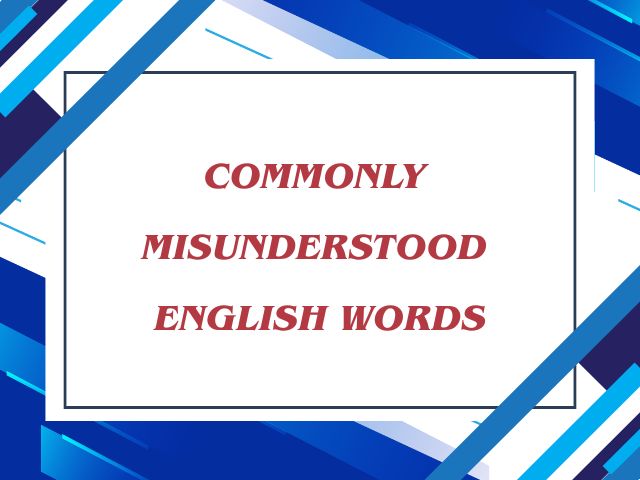Cách Sử Dụng Câu Liên Kết Trong Tiếng Anh (Linking Sentences)
Câu liên kết là một yếu tố quan trọng trong việc viết bài tiếng Anh, giúp nối các ý và câu lại với nhau một cách mạch lạc và logic. Việc sử dụng câu liên kết đúng cách không chỉ giúp tăng tính logic và sự rõ ràng trong văn bản, mà còn cho phép người đọc dễ dàng theo dõi luồng ý và hiểu rõ hơn.
Đối với những học viên muốn nâng cao khả năng sử dụng câu liên kết trong tiếng Anh, chuẩn bị cho kì thi chứng chỉ Anh văn KET PET và chứng chỉ TOEIC thì bài viết này không chỉ giúp bạn rèn kỹ năng ngữ pháp và từ vựng, mà còn cung cấp kiến thức về việc sử dụng câu liên kết hiệu quả.
cấu trúc câu liên kết - Linking sentences
But, though, however
4. Ta có thể sử dụng but và although để liên kết hai câu lại với nhau khi ta muốn diễn đạt sự tương phản giữa hai khẳng định hoặc hai tư tưởng:
Sheffield used to be a very dirty city, but now it’s much cleaner.
Although it’s a simple camera, it’s very expensive.
But luôn luôn đứng giữa câu.
Although có thể đứng giữa câu hoặc đứng đầu câu.
Though có cùng ý nghĩa với although, nhưng kém trang trọng hơn.
Though Tom has a reputation for being difficult, he’s helped me a lot.
Ta cũng có thể đặt though ở cuối câu:
Tom has a reputation for being difficult. He’s helped me a lot, though.
5. Ta sử dụng however trong các tình huống trang trọng hơn để nhấn mạnh sự tương phản giữa hai câu; however được phân chia bằng dấu phẩy:
John’s written work is the best in the class. His drawing, however, is very poor. /However, his drawing is very poor.
7. Đôi khi ta sử dụng on the one hand cùng với on the other hand:
On the one hand, the campsite is well run and has good services. On the other hand, it is quite a long way from the sea.
Thực hành văn phạm Câu liên kết Linking Sentences trong tiếng anh
4. Ta có thể sử dụng các lối diễn đạt này trong những tình huống trang trọng, để phê phán về một tình huống. Trường hợp ta viết báo cáo về công việc của một người:
Sally was taken on last year as a trainee illustrator, but now she has a permanent contract. Although she has not worked here for very long, she has gained the respect of her colleagues. She still has things to improve in her hand drawing. On the other hand, her computer creations are very amusing.
5. Ta cũng có thể sử dụng các lối diễn đạt này để đưa ra ý kiến và quan điểm riêng về các dự thảo hoặc các thay đổi, trường hợp nói về các thay đổi cho trung tâm thành phố:
In general, I agree that the town centre has to change, but I’m not convinced by the present proposal. I argues that traffic should be banned completely, which is fine for younger people. Elderly people will find it difficult to get to the shops, though.
Bài tập Câu liên kết Linking Sentences trong tiếng anh
D. Making comments about people’s work
Read these comments about five new members of staff in a company. Rewrite the sentences using the word given. You may need to change the punctuation.
Sally Brown
Sally works hard. Shi is not very productive.
0 although: Although Sally works hard, she is not very productive.
0 but: Sally works hard but she is not very productive.
0 however: Sally works hard. Hoever, she is not very productive.
Brian Shepherdson
Brian is quite young. His work is greatly apprciated.
1 although:
2 however:
Mary Martin
Mary is a favourite with the boss. Her colleagues don’t like her.
3 but:
4 although:
5 however:
Joan de la Forest
Joan’s English is not very good. She gies her message across.
6 however:
7 though:
Tony Kelly
Tony always arrives late. He usually finishes his work on time.
8 but:
9 although:
E. Town plans
Phil and Eve are talking about proposed changes to their town. Complete their conversation by choosing the right expression.
PHIL I’ve read about the plans in the newspaper (0) but / however I haven’t read the actual proposal.
EVE It all seems quite sensible to me. (1) What’s more / On the other hand, the proposal has the support of all the political parties. If you go to the town hall, you can read the proposal free. (2) Although / However, if you want to have your own copy, you have to pay for it. One of the main things is that all cars will be banned from the town centre (3) unless / if they have special permission.
PHIL I like the idea of a pedestrian shopping area in the centre of town. It’ll be difficult if you have heavy things to carry, (4) though / but.
EVE During shopping hours, there’ll be a free electric bus service so you won’t need to walk very far. (5) However / Moreover, the big shops will have extra staff (6) in case / unless anyone needs help with their shopping bags.
PHIL Yes, but there are in fact two ways to get to town from the suburbs. You can drive in and park underground, (7) if / though that will be pretty expensive. (8) On the other hand / Furthermore, you can park your car near a bus stop and take the bus into town, which will be cheaper. And (9) if / unless you don’t want to pay each time, you can get a bus pass. (10) What’s more / However, that only makes sense if you’re a regular shopper.
PHIL So the pass isn’t free.
EVE No, you have to pay (11) if / unless you’re disabled or over 60.
PHIL I think I’ll send my mother to do the shopping because she’s over 60. (12) What’s more / On the other hand, she loves shopping!
Đáp án:
D.
1. Athought Brian is quite young, his work is greatly appriciated.
2. Brian is quite young. However, his work is greatly appreciated./His work, however, is greatly appreciated.
3. Mary is a favourite with the boss but her colleagues don’t like her.
4. Although Mary is a favourite with the boss, her colleages don’t like her.
5. Mary is a favourite with the boss. However, her colleagues don’t like her./Her colleagues, however, don’t like her.
6. Joan’s English is not very good. However, she gets her message across.
7. Joan’s English is not very good. She gets her message across, though./Though Joan’s English is not very good, she gets her message across.
8. Tony always arrives late but he usually finishes his work on time.
9. Although Tony always arrives late, he usually finishes his work on time.
E.
1. What’s more 7. though
2. However 8. On the other hand
3. unless 9. if
4. though 10. However
5. Moreover 11. unless
6. in case 12. What’s more
Nguyễn Minh Sơn 10.11.2012




